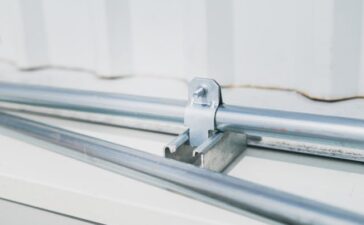Gardening can be a fulfilling and rewarding hobby. A beautiful and well-maintained garden can provide a relaxing and peaceful retreat from the hustle and bustle of everyday life. However, maintaining a garden can be a challenging task that requires time, effort and dedication. Here are some important things to know about garden maintenance.

One of the most important aspects of garden maintenance is soil preparation. The health of plants and flowers depends on the quality of the soil. The soil must be well-draining, fertile and rich in nutrients. The soil pH should also be tested to ensure that it is suitable for the plants you intend to grow. Adding organic matter such as compost or well-rotted manure can improve the soil structure, fertility and water-holding capacity.
Watering is essential for the growth and survival of plants. However, it is important to water plants correctly to avoid over or under-watering. Over-watering can lead to waterlogging and root rot, while under-watering can cause the plant to wilt and die. Watering should be done early in the morning or late in the evening to reduce evaporation. Water should be applied to the base of the plant, avoiding the leaves to prevent the spread of diseases. Weeds are unwanted plants that grow in the garden and compete with other plants for nutrients, water and sunlight.
Weeding is an essential part of garden maintenance as it prevents weeds from taking over the garden. Weeds can be removed by hand or by using a hoe or cultivator. It is important to remove weeds regularly before they have a chance to set seed. Pruning is the process of removing dead, diseased or damaged parts of a plant to promote growth and improve its appearance. Pruning should be done at the right time of year and with the correct tools to avoid damaging the plant. Different plants require different pruning techniques, so it is important to research the specific needs of each plant.
Fertilising is the process of adding nutrients to the soil to improve plant growth and health. Different plants have different nutrient requirements, so it is important to choose the right type of fertiliser for the plants you intend to grow. Fertilisers can be organic or inorganic and can be applied in granular or liquid form. Pests and diseases can damage plants and reduce their productivity. It is important to identify and control pests and diseases before they spread to other plants. Prevention is key, and measures such as crop rotation, companion planting and good hygiene practices can help to reduce the incidence of pests and diseases. Chemical controls should only be used as a last resort and should be applied according to the label instructions.

Mulching is the process of adding a layer of organic material to the soil surface to conserve moisture, suppress weeds and improve soil fertility. Mulching can also help to regulate soil temperature and prevent soil erosion. Common mulching materials include compost, straw, leaves and wood chips. Mulch should be applied to a depth of 5-10cm and should be kept away from the base of plants to prevent rotting. Garden design is an important aspect of garden maintenance. A well-designed garden can create a sense of space and tranquillity, while also providing practical benefits such as shade and privacy. The design should take into account factors such as soil type, light levels, and the size and shape of the garden. The use of colour, texture and form can also be used to create an aesthetically pleasing garden.









